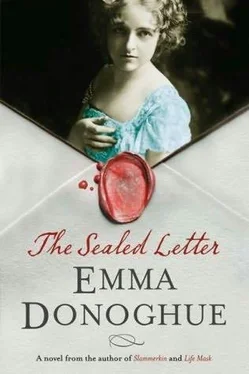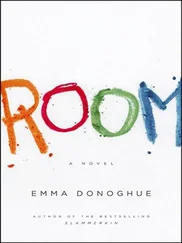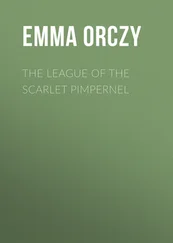Malta, all this time?"
"I knew nothing of it myself till the man's letter turned up on my tray," mutters Helen, eyes on the glaring street.
"But-"
"Don't fuss and fret," she says mildly, "I'm going to set it all to rights. But now you see that I can't invite him into my own house, and I can hardly begin such a speech on the street, or in a carriage: what if he were to make a scene?"
Fido frowns. "Surely he's too much of a gentleman-"
"Yes, but he's a desperate man too." Helen turns, speaking in a thrilled murmur. "The things he's said, in the past few weeks-threats against his own life…"
Fido clamps her teeth together. Vulgar, vulgar. "Very well, let it be here: if it were done when 'tis done, 'twere well it were done quickly," she quotes. "On what day am I to expect the colonel?"
Helen glances at the clock on the mantel. "He should be here any minute."
Fido recoils.
"Four, I said in my note."
"I don't want to be a party to such a scene!"
"Dearest, I wouldn't ask that of you," Helen assures her, coming over to press Fido's hands between her own surprisingly cool ones. "Simply make some excuse and leave the room for half an hour."
"But-"
The doorbell chimes below. A pause, then Fido hears Johnson's heavy footsteps cross the hall. "You're a force of chaos," she growls. "My life has been infinitely calmer without you in it."
Helen's eyes are glittering. "Don't be hard on me just now; I don't believe I can bear it. I'll need all my courage for this interview."
"Bless you, then," says Fido, giving her a crushing hug, and a kiss on her bright hair.
"Won't you go to the top of the stairs to receive the poor man?" asks Helen. "He thinks such a great deal of you."
That's humbug, Fido knows: the officer's only met her twice. But yes, she does pity Anderson, despite her squeamishness; pities his state of enthralled fascination; pities his puppyish look as he hurries up the stairs, unaware of the coming blow. Falling in love with Helen has probably been the great drama of his life; it'll all be humdrum regimental routine from this point on. He should have kept his mouth shut, Fido decides; should have adored his beloved in manly silence, or consigned his feelings to bad verse and locked them up in his desk. But that kind of gallantry's dead and gone. And can Fido really blame him for speaking his love, when Helen-in her loneliness and, yes, vanity-has clearly been all too ready to hear it? (A prim old adage of her mother's runs through Fido's head as she's walking towards the stairs: A gentleman is always a gentleman unless a lady forgets to be a lady. )
So she greets the colonel kindly, and brews fresh coffee, as he doesn't care for tea; she even offers him a little chasse-café from the brandy decanter, to cushion his spirits. She remarks on the delicious cooling of the weather; she speaks highly of Mr. Gladstone's speech on the secret ballot. "Perhaps its time has come. After all, they've adopted it in France and Italy already."
"Exactly," says Anderson with a snort. "It's a Papist notion. A Briton casts his vote openly and without shame, in the sight of his neighbours."
"A man of independent means, may, certainly," Fido concedes, "but too many voters are under the influence of their squires, or employers, or rich customers, so come Election Day they act as so many timid sheep. Wouldn't the secret ballot give them protection from reprisal-and the courage of their convictions?"
Anderson makes a face. "To my mind there's something sneaking and unmanly about it."
"But that's the paradox, isn't it, Colonel? In the case of democracy, it may take secrecy to bring about sincerity. Behind the veil, the truth will out!"
His eyes are sliding away from her again, towards Helen, on the other sofa, pale as a marble.
It's time. Fido stands and says quietly, "I've promised Mrs. Codrington to allow her to speak to you tête-à-tête, because I know she has something very important to say."
Anderson blinks, jumps to his feet.
There, Fido thinks, giving Helen a look over her shoulder, that should screw her courage to the sticking-place.
Downstairs in her study, she can't settle to anything. She leafs through the September number of the English Woman's Journal, making a few desultory notes about what could be done to liven it up. (For years now she's been aware of the paradox that although all the members of the Reform Firm have a raging passion for the Cause, their Journal has the earnest, mildly querulous tone of the newsletter of some minor craft guild.) She finds a squashed piece of layout, and hisses with irritation: she's always reminding her typos at the press of the importance of maintaining the spaces between things. To pass a little more time, she brings her account book up to date, and replies to a short but affectionate note from her mother. We've received permission from the University of Cambridge to put forward a few really superior candidates in the local examinations, she writes, an experiment which we do hope will contribute in some small way to raising standards in the proper education of girls, something that I know has always been dear to your heart, Mama.
When Fido checks her watch, only sixteen minutes have passed. But really, how long can it take to tell a man to abandon hope?
She fiddles with the chain of her watch, which has developed a kink in it; she uses a paperweight of the Crystal Palace to press the two links back into line. Her father bought Fido this glass globe as a souvenir of their visit to the Great Exhibition when she was fifteen. (Out of the multitude of objects on display, for some reason the one she remembers is the gigantic pocket knife with eighty blades.) That was the same year she spent a month's pocket money on Longfellow's Golden Legend, and her brother George-too devout, even before he was ordained, to approve of poetry-burned it. She wept, and complained to her mother, but didn't dare buy another copy. These days Fido's so much her own person that she finds it hard to remember being that girl. How far she's come from the safe, enclosed world of the Rectory, where words were as solid as bricks: brother, family, role, duty.
Nineteen minutes. Almost twenty. Such claptrap, Fido thinks suddenly, I'm not to be barred from my own drawing-room. Besides, Anderson probably rushed off the moment Helen broke it to him; why would he stay for further humiliation? But then, Fido hasn't heard the front door shut, so he can't have left. Is the man distraught, barging back and forth across the carpet? Issuing denunciations? Threats? She imagines his hands (with their light pelt of golden hair) clenched on Helen's smooth arm.
It only takes Fido a moment to rush upstairs. She waits outside the door of the drawing-room, listening for any sounds of distress. If the two are talking quietly, she'll give them five more minutes; eavesdropping would be detestable. Dust motes dance in the shaft of afternoon light coming across the landing from a gap in the curtains. Oddly enough, Fido can't hear any voices at all, just a little sharp sound: a high-pitched rasping. A sob? Could Anderson have walked out of the house quietly, left Helen crying at the tea table? Or have the two of them reduced each other to speechless misery?
Suddenly, across the back of Fido's eyes, the image of a kiss: Helen's coral mouth, the officer's straw moustache. She feels something like rage. She's about to fling the door open when she registers that the little sound's getting louder and faster. It's not a sound she's ever heard before, which is perhaps why it takes her several more seconds to admit what she's hearing. It's not a gasp of grief or muffled protest, no, it's mechanical: the frantic squeak of the sofa springs as they're forced up and down, up and down.
Читать дальше












